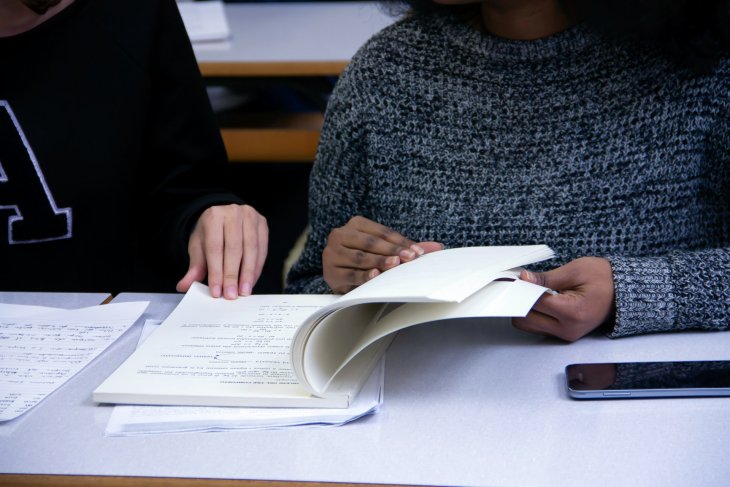This week is Peer Review Week 2020. The aim of this annual, global, virtual event is to raise awareness of the importance for research of peer review – the practice of researchers providing feedback on each other’s work, most prominently in connection with publication of research in academic journals.

Photo: Alissa De Lava via Unsplash
The mission of the Peace Research Institute Oslo (PRIO) is to promote peace through research. If our research is going to have a (positive!) impact on policymakers, stakeholders and the general public, it must and should be of exceptionally high quality. At PRIO, then, where excellence and engagement are intimately and explicitly intertwined, it is natural that there is a high level of awareness of the importance of peer review, a practice that aims to ensure that the standard of research is a necessary condition of its dissemination. Further, as the owner and host of two leading academic journals, Journal of Peace Research and Security Dialogue, PRIO is concerned with peer review not only from the perspective of a producer of research but also a distributor.
While the age and origins of the practice of peer review are matters of scholarly debate in the history of science, it seems indisputable that the use of peer review in the editorial procedures of academic journals has today become an integral facet of the research process. In many respects, peer review is now a shibboleth for specifically scholarly content. It is, therefore, an important practice to reflect upon and interrogate for those concerned with what it means to do research and do it well.
All the more so because there is a degree of unease in some quarters regarding the state of peer review. Whether or not peer review has ‘fallen’ from some prior lofty height – and we should always remember to suspect such narratives – there are many who feel that the practice in its current incarnation is problematic, or at least sub-optimal. There are things we can do to make peer review better. Some of these will be explored in this blog series.
Our series opens with something we feel is very important here at PRIO: guidance for young scholars. Reflecting on his own experience from various positions within the peer review situation, Senior Researcher Jørgen Jensehaugen endeavours to offer some advice to early career researchers on how to respond effectively to peer review in light of the particular challenges facing younger researchers (despite the intended anonymity of the process).
On Tuesday, Wednesday and Thursday, our bloggers turn to some of the challenges facing peer review and proposed some possible solutions. Senior Researcher Sebastian Schutte will interrogate some of the problems with the currently dominant ‘double blind’ model of peer review, arguing that integrating reviewing reviews into the peer review process can help improve the practice. Research Professor Pavel K. Baev notes the inconsistent quality and rigour of many peer review processes and points to a differentiated system of levels of peer review as a possible partial solution. Special Adviser Lynn P. Nygaard turns our attention to the ways in which peer review can reinforce gender-based and geolinguistic inequities in the research system, and suggests that more attentiveness to training in and reflection on the role of the peer review might help address these concerns.
On Friday, Senior Researcher Haakon Gjerløw, mounts an impassioned defence of peer review against criticisms levelled by defenders of new forms of research assessment, specifically those associated with the San Francisco Declaration on Research Assessment. On Saturday, Marit Moe-Pryce, Managing Editor of PRIO journal Security Dialogue, talks about the role of journal editorial offices in peer review, and in particular about their role in ensuring that the feedback authors receive is as constructive as possible.
Finally, on Sunday, Senior Researcher Nicholas Marsh looks at the role of peer-reviewed and non-peer-reviewed publications in the uptake by the general public of research on COVID-19, reflecting on the emerging challenge posed to the established model of pre-publication peer review by preprints and other forms of dissemination.
The theme of this year’s Peer Review Week is trust. Research can only have a positive impact on public opinion, professional practice and political decision-making insofar as the pronouncements of researchers maintain their legitimacy and the epistemic heft of the research process is acknowledged and respected. As a rigorous gatekeeping mechanism – and both a contributor to and signifier of scholarly rigour – peer review has the potential to play a key role in maintaining trust in research and researchers. As such, I am happy that we at PRIO, through the present blog series, can contribute to these vital debates about the state and future of this central scholarly practice.
- David J. Allen is Adviser to the Director at PRIO.